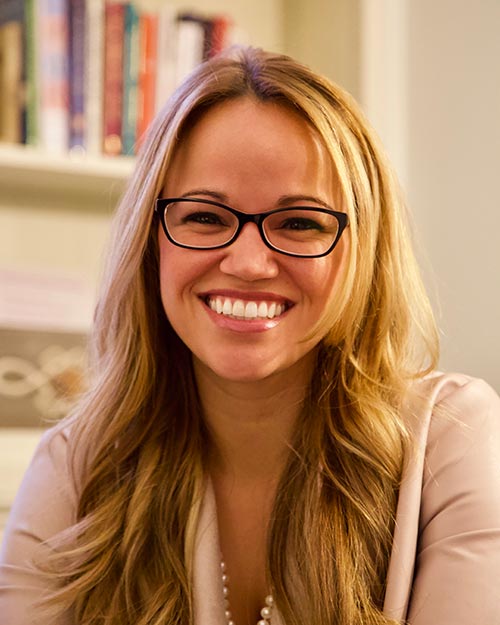Your marriage started with all of the joys and sparkle that could make anyone swoon. You laughed together, you dreamed together, you were great. This is how many stories start in my Atlanta counseling office.
But then, life happened. You got busy, your career went through changes. You both grew professionally and things were great in some ways, but in others you struggled. You spent less time together. Having kids meant you had to prioritize them more than anything else. And you’re both great with the kids…but with eachother you’ve grown distant. It’s hard to feel connected and you realize that you don’t even smile with eachother anymore. It’s like two roommates living together, but not LIVING.
The other day your spouse broke it to you, “I want a divorce.” It hit you like a ton of bricks and emotionally you were wrecked. But as you keep processing you realize that you’re not surprised. You’re angry in some ways, but relieved in others. You’re accepting that your spouse had become someone you weren’t connected to and for years you’ve wanted to get support but one of you just couldn’t accept going to an Atlanta couples counselor. Or maybe you did, but it just didn’t work. It was too little too late.
Now what? Our Atlanta counselors help people work through this question all of the time. What do we do when our world as we envisioned it is literally falling apart? How do we move on from years of pain and somehow manage to find ourselves and not go into an unhealthy spiral?
1. Seek support. I’m a big fan of encouraging people who are going through a divorce to see an Atlanta counselor for individual counseling. Counselors can support you in processing your emotions, exploring what went wrong, and shifting to a place of connection as you move forward towards your goals. They can also serve as an unbiased person who can gently nudge you if you’re going into unhealthy or unhelpful narratives or behaviors that can ultimately make divorce worse. Family and friends are also great with support, but you’ll want to be aware that they may have personal biases and may not stay as objective. Still, if they’re emotionally healthy they can be great at giving you space to express your emotion and seek support and this can remind your heart and brain that you’re not alone. Your spouse is not your only support system. Another type of support that I like to encourage people to consult is professional support. Think attorneys, accountants, financial advisors, teachers, mentors, etc. The more wisdom you have access to in your team, the better. Obviously, you want to make sure they’re people who are emotionally or professionally safe enough.
2. Allow time for grief. Our Atlanta counselors teach people that often times we expect grief to start, follow a straight line (or list of stages of grief) and then end. But really, grief is like spaghetti and it can be tricky to figure out where you are in the process. That’s okay. We don’t necessarily want to expect grief to start and end, but rather we can expect it to be a process. We can expect feelings and experiences to come and go and maybe come again. Rather than start and end, we move through it allowing it to take time and working to stay healthy in the process.
3. Strengthen spirituality. However you practice spirituality in your life, this is a time to lean in and connect with this side of you. Not for religious reasons, but for supporting your overall mental health. Spirituality is a key component to maintaining mental health and involves mindfulness and a quieting of the soul. It promotes connecting with yourself, your body, and the earth. Great ways to practice spirituality include grounding by walking barefoot outside, meditating for 15 minutes to a guided meditation, journaling, and listing 5 things you’re grateful for every day. Our Atlanta counselors know that eventually, practicing spirituality can support you in exploring purpose and gratitude which are also important components when considering one’s mental health.
4. Start slowly exploring your personal identity. This isn’t something you need to rush into. It’s a slow gentle finding of who you are as you shift your identity from being married to that person, to now being single. Marriage has a way of impacting our sense of self, as do our careers, having kids or not having kids, and how we look. And so when one thing changes, it can really shake us. But that’s okay. We have this opportunity to work to explore this new self…slowly. The reason I say slowly is because there will be some grieving and sadness that are a normal part of going through a divorce. .That part will look different two days after you hear of the divorce compared to three years after the divorce. And so, your sense of self will evolve too. You can start by slowly considering what you like to do, who you enjoy to spend time with, what you want to eat for breakfast…small things that may have been wrapped with someone else’s preferences but now can just be your own.
5. Try to work not to make huge decisions or changes where you don’t have to. There will be many decisions and changes that you must make when you get a divorce. And typically Atlanta counselors will encourage people to avoid any other huge decisions because we can be in a very emotional state when making them and therefore not have as much access to our rational part of our brain. Still, many people just WANT to make big changes with divorce. So, if you are going to make a big change (i.e. cut your hair, get engaged to someone else, quit your job, buy a car, spend a lot of money, etc.) it can be good to consult wise people in your life before making the decision. This includes using your professional support system.
6. Be careful about getting into another relationship quickly. Every situation is different and every person’s needs are different so this is not a hard fast rule but just a caution from an experienced Atlanta counselor. Be cautious when you consider dating and getting into another relationship. When we’re married we can get very used to having a partner, someone to chat with and spend time with, and we lose sight of how to engage with life on our own. And that’s okay in marriage, but when we divorce we can unintentionally want to jump right back into that because that’s what felt comfortable. But if we’re not careful we can lose the space and time in our lives that allow us to process, grieve, work on ourselves, and adjust because we’re distracted with another relationship.
There are so many aspects of divorce that are difficult, and as an Atlanta counselor I know all too well the pain that people can go through in this process. I want you to know that you’re not alone. You’re not the only one. And if you need support please feel free to reach out to one of our Atlanta counselors.


